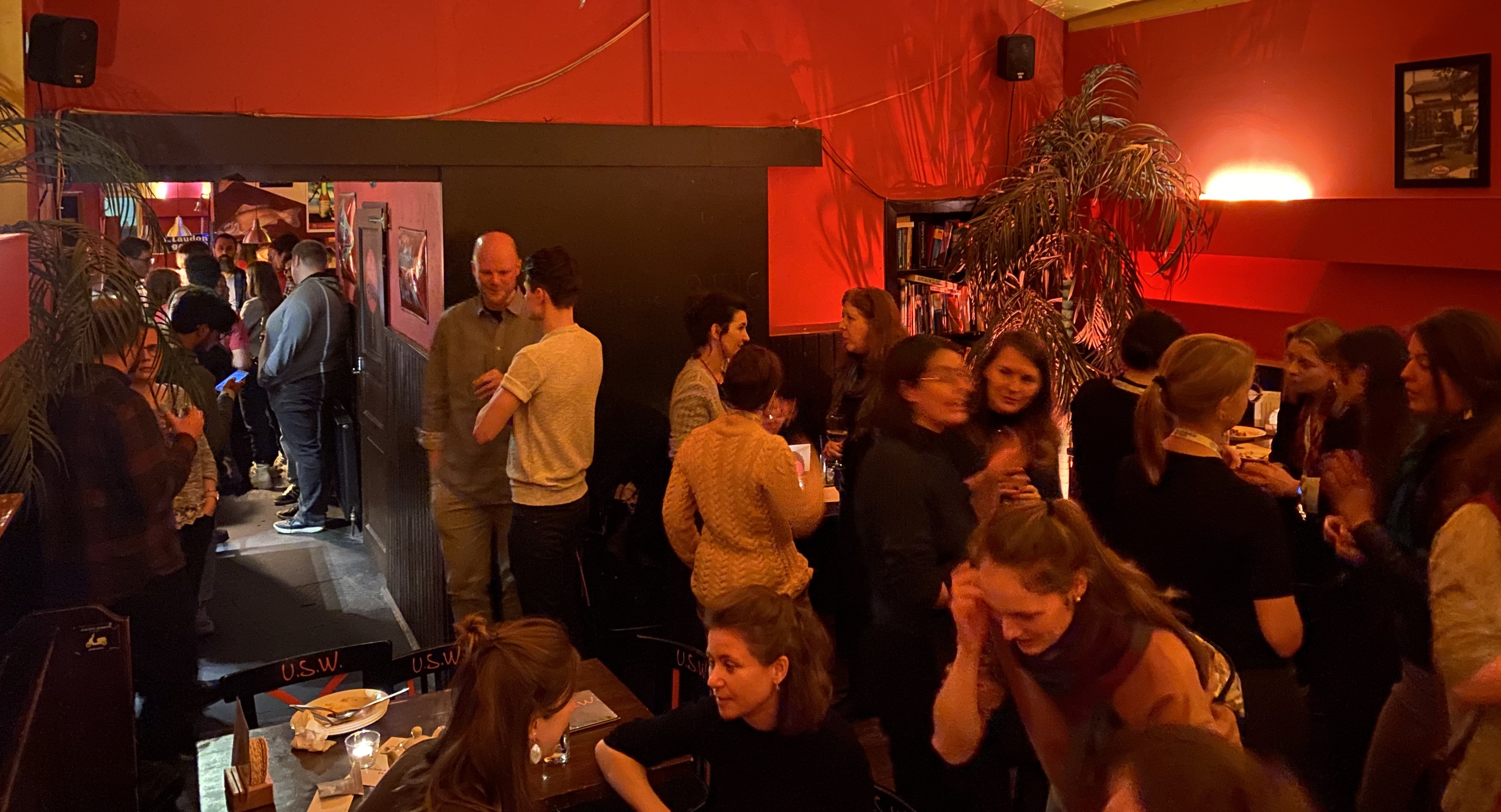Arctic Science Summit Week (ASSW) is an important venue for Arctic research coordination and collaboration and is organized annually by the International Arctic Science Committee (IASC), one of APECS’ key partners. ASSW 2023 was held in Vienna, Austria from 17-24 February. APECS is typically active at ASSW, but this year was especially busy after online-only editions of the summit in 2020 and 2021, and a smaller, hybrid edition in 2022. The event gives APECS leadership the opportunity to engage with the wider polar and alpine community and collaborate in-person. In addition, APECS leadership members take the chance to have informal meetings with representatives from APECS National Committees (NCs) and partner organizations.

Above: the APECS early career social evening. Image by Sarah Strand.
On Monday 20 February, APECS organized an early career social for ASSW attendees at a local bar. The Austrian Polar Research Institute, the local host of ASSW 2023, graciously financially sponsored the event. Over 60 people attended, taking the chance to network and unwind during the hectic summit week. Given the lack of in-person events during the pandemic period, this was a rare and valuable opportunity for members of the APECS community, who primarily collaborate digitally, to physically come together.
APECS is a member of the EU Polar Cluster, a network of polar projects and organizations coordinated through the EU-PolarNet 2 consortium. Susana Hancock, APECS President, served as a panelist in the EU-PolarNet 2 session about advancing European polar research strategies. Sarah Strand, APECS Executive Director, followed the EU Polar Cluster’s session for updates from relevant projects as well as present and future collaborators.
Polar Educators International (PEI), another important partner of APECS, hosted multiple sessions that APECS contributed to and participated in. Deniz Vural, APECS Executive Committee Ex-Officio and PEI Council member, hosted the session: “Engaging with the Arctic: Scientists and Educators Co-developing Education, Outreach and Communication tools for the Polar Resource Book (PRB2)”. A new (online) edition of the Polar Resource Book is underway, and this session provided updates and the opportunity for brainstorming and generating new ideas that will shape the development of the project.

Above: the joint APECS/PEI session on the new version of the Polar Resource Book (PRB2). Image by Deniz Vural.
Lisa Grosfeld, APECS Project Officer in the Arctic PASSION project, and Louise Mercer, APECS member, co-convened a session on capacity sharing between researchers and Arctic rights holders and stakeholders, with a focus on early career researchers and Arctic youth. Svenja Holste, a previous staff member of the APECS International Directorate and Project Group Leader during the 2021-2022 APECS term, convened a session on reducing the environmental impact of Arctic research. This session grew out of the collaboration that Svenja led between INTERACT and APECS on the now-published guidebook Reducing CO2guidebook Reducing CO2 Emissions in Arctic Science.
Sarah Strand, APECS Executive Director, represents APECS in the Fourth International Conference on Arctic Research Planning (ICAPR IV) Steering Committee, which had a full-day meeting and townhall at ASSW. Sarah also served as a panelist in the National Science Foundation’s session: “Challenges and Successes in Fostering Safe and Inclusive Working Environments in the Field” and participated in the IASC-funded workshop on race and systemic bias in Arctic sciences.
The next ASSW will be held in Edinburgh, Scotland from 21-29 March 2024, and APECS looks forward to another summit of gathering and collaborating with the polar community.
